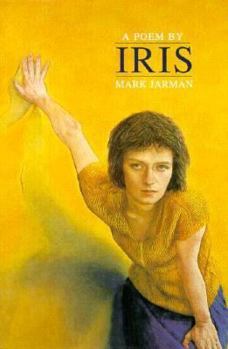Iris: A book-length poem
Select Format
Select Condition 
Book Overview
I haven't read a new poem for years as extravagantly daring as Mark Jarman's IRIS. This strange and obsessive narrative risks violating almost every preconception we have about how a serious contemporary poem should behave. First, IRIS risks seeming unoriginal. The poem is a passionate homage to Robinson Jeffers, our most neglected modern master. Jarman borrows Jeffers' line, his voice, his landscapes, and his vision. Eventually he even borrows Jeffers himself by making his imagined ghost the tragic chorus of this feverish drama. But the sheer audacity of Jarman's appropriations - like Blake recasting Milton or Pound impersonating Propertius - becomes something more wildly innovative and astonishing than those tame adjustments of theme and style we normally praise as originality. Next, IRIS risks being earnest. In an age when literary criticism celebrates irony, ambivalence, and indeterminacy, Jarman resolutely insists that poetry can truthfully explore matters of mortal consequence. IRIS is the story of a woman who refuses to be crushed by the sordid circumstances of her life - the poverty and drugs, the violence and unredemptive love. In a better world she would have been an artist. But in her desperate corner she struggles simply to understand how freedom or fulfillment is possible. Born to hell, she strains for a glimpse of paradise, even if it can never be her own. Finally, IRIS risks reaching for the sublime. Writing about the landscapes of everyday life, using the language of ordinary people, Jarman pushes his material to its uppermost limit where naturalism merges into myth. IRIS has enhanced the possibilities of our literature by reclaiming a lost tradition of American poetry.
Format:Hardcover
Language:English
ISBN:0934257876
ISBN13:9780934257879
Release Date:January 1992
Publisher:Story Line Press
Length:134 Pages
Weight:0.90 lbs.
Dimensions:9.3" x 0.8" x 6.5"
Related Subjects
PoetryCustomer Reviews
2 ratings
what a narrative should be
Published by Thriftbooks.com User , 20 years ago
In his Reaper Essays Jarman espouses the positive characteristics of the narrative poem, and then in his book-length narrative poem, _Iris_, he puts in practice what he puts forth in theory. He uses long lines--ten feet of iambic pentameter. The story is of a young mother, Iris, and her search for family and for the meaning in the poetry of Robinson Jeffers. Section one is as good as you are going to find in narrative poetry. I will admit that section two is rather weak. But he rises again in section three, wich is rather good, it doesn't rise up to what you find in section one, but then what could, but still, it is quite good. I highly recommend this book as an example of what narrative poetry should be.
valuable addition to narrative verse
Published by Thriftbooks.com User , 26 years ago
Though not a fan of New Formalism or any of its subsequent branches, including the New Narrative, I have found Jarman's book-length poem Iris to be captivating and impressive. The book is ultimately a tribute to Robinson Jeffers, but Jarman succeeds in establishing his own narrative style that incorporates deft lyricism and acute observation.






